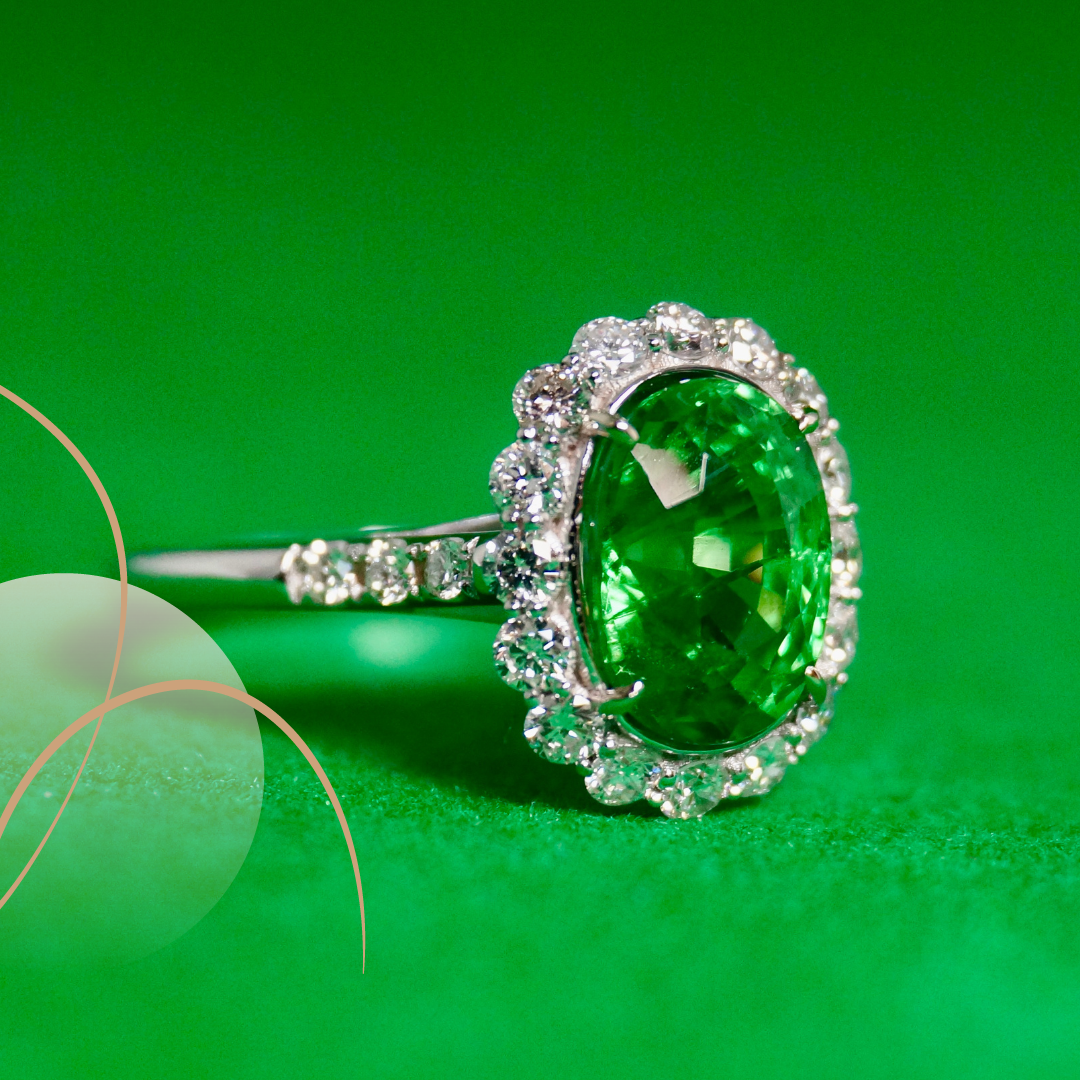Determining if a tsavorite is synthetic (lab-created) or natural can be challenging without specialized equipment and expertise. However, there are some general indicators that can help you evaluate the possibility of a tsavorite being synthetic:
-
Documentation: Check if the tsavorite comes with proper documentation, such as a certificate from a reputable gemological laboratory. Natural tsavorites are often accompanied by certificates that verify their origin and authenticity.
-
Price: Lab-created tsavorites are typically more affordable than natural ones of comparable quality. If the price of the tsavorite seems unusually low or too good to be true, it may indicate a synthetic stone.
-
Inclusions: Natural tsavorites often have characteristic inclusions, such as small crystals or color zoning, which are indications of their natural formation. Lab-grown tsavorites, on the other hand, may have fewer or no inclusions, appearing more flawless or artificially uniform in appearance.
-
Growth Patterns: Synthetic tsavorites may exhibit growth patterns that differ from those found in natural stones. They might display consistent growth lines or patterns that indicate they were grown in a controlled laboratory environment.
-
Color Consistency: Synthetic tsavorites can sometimes have a more consistent and uniform color distribution compared to natural stones. Natural tsavorites may show variations in color intensity or slight color zoning due to their geological formation.
-
UV Fluorescence: Some lab-grown tsavorites may exhibit unique UV fluorescence patterns under specialized lighting. Professional gemological laboratories can perform UV fluorescence tests to determine if the gemstone shows any artificial fluorescence characteristics.
It's important to note that these indicators are not foolproof, and determining the origin of a tsavorite gemstone requires expertise and advanced testing. If you have concerns about the authenticity of a tsavorite, it is recommended to consult with a professional gemologist or a reputable jeweler who can conduct the necessary tests to determine if the stone is natural or synthetic.

